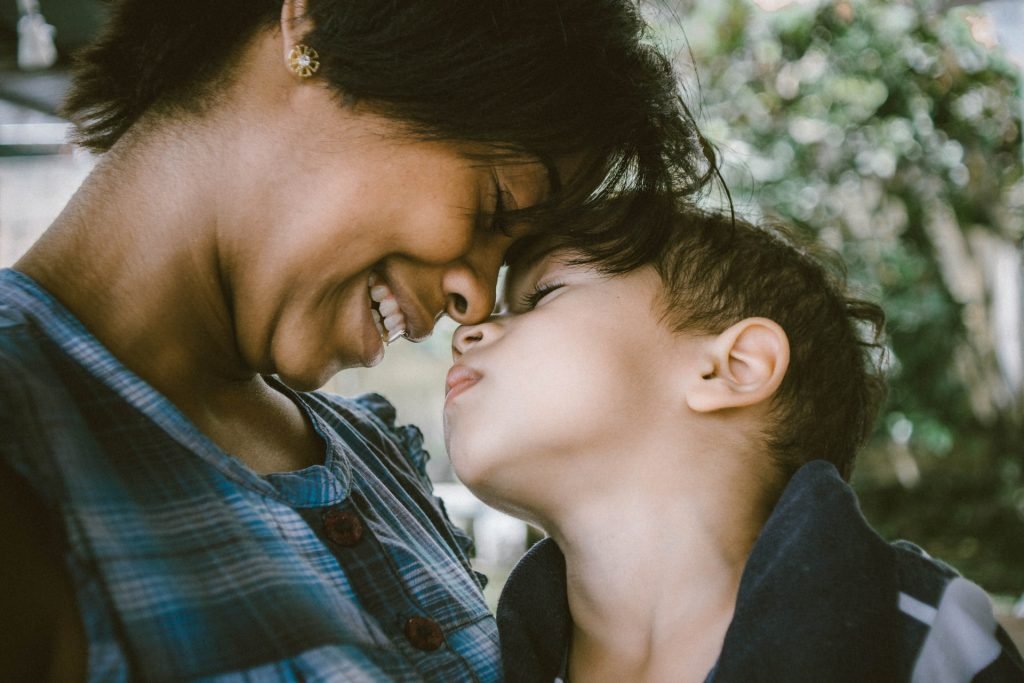Parenting is not an easy job. It is twice as hard to parent kids that are not biologically your own because they have acquired some personalities and traits before coming under your care. More often than not, fostering or adopting is being put in the spot to manage difficult behaviors that foster or adoptive kids have acquired to surviving the foster care system or the orphanage.
No parent is perfect in the same way that no child is perfect either. What is important is promoting the best interest of the child. You, as parents, are going to help the kids not just to be survivors of their past, but to become thriving, productive citizens of their future.
First, be a role model to the kids. They may or may not have individuals to look up to in their previous homes, but now they have you for that. As a person of authority in the kid’s life, you will teach them a lot of social skills through your actions. If you want your foster or adoptive child to be a good person, teach them respect by respecting them first and empathizing with their emotions. Show them positive attitudes and behaviors, especially during difficult times and taxing events. These will give them a guide on how to deal with adversaries later in their lives that’s different from the abusive and neglectful way they saw their biological parents and previous caregivers do.
Second, verbalize and show them your love. In consideration of the kind of trauma or bad experiences these kids had, there are ways to convey your love to them. Be aware of the kid’s trauma. Listen and take their issues seriously. No one knows how neglected the emotional need of kids was in their past. Be the person they can talk to regardless of the issue.
Be there for them, spend time doing activities that they like. Validate that their need for companionship is normal and goes both ways for both of you. If comfortable enough for the child, hug and kiss them as much they like you to.
There is no such thing as too much love to spoil a child. What is spoiling is too much love-substitutes like material things, being overprotective, low leniency, and too much or too little expectation. Remember, you are the role model for these foster and adoptive kids, so make them strive to be better than their past and be the best for their future selves.
Next, be kind but firm by practicing positive disciplining. The first thing for parents to remember when disciplining foster and adoptive kids is to avoid using corporal punishment. These children were placed in foster care or adoption primarily because they were abused and neglected. The last thing they need in their new homes is being physically and verbally abused again.
Below are some ways to discipline foster and adoptive kids. One or a combination of these may be effective in disciplining your child.
- Try to redirect the child’s attention from the undesirable behavior to a more productive activity. If your child is pestering a sibling, ask him or her to go to another room to engage in a hobby. Or you may bring him along with you while going about your day around the house.
- Ignoring the undesirable behavior. This is picking your battle wisely. Ignoring misbehavior is not necessarily mean letting the child get away with it. What you are doing is selective ignoring because you selectively ignore only the attention-grabbing behaviors. Their antics are their ways of trying to get your attention like whining and foot-stomping. Ignoring these kinds of behavior says that acting out will not get your attention. With no captivated audience, they will cease such attention-grabbing actions. However, aggression is one behavior that should not be ignored and needs immediate negative consequences like time-out or loss of privilege.
This “ignoring misbehavior” technique is only effective if you already established a positive relationship with the foster or adoptive child. This will not work if you are just initially engaging or connecting with the foster or adoptive kid/s. The child should already have plenty of positive experiences with you and will desire more, many moments of you giving him or her plenty of attention for his or her good behavior.
- Try the classic “time-out” method. But is not recommended for kids that have abandonment issues. If it is a problem, try the opposite of time out, which is time-in. The child stays beside the parent for a certain minute helping the parent with the chores and not allowed to do other things or leave the parent’s side. Just make sure you are not overly stressed out, otherwise, the child will feel negatively impacted by your overwhelming emotions.
- Talk with the child about their feelings. Some foster or adoptive children are so traumatized that they have become detached from their feelings, or have difficulty understanding why they feel such emotions, or if they have the right to feel such emotions. An example would be, why am I angry? Do I have the right to be angry with such and such if I am only fostered or adopted? Validate their emotions and always affirm your love to them.
Also, talking with your foster and adoptive child builds a better communication line and they will not hesitate to seek you out when having problems.
- Earning and losing privileges. Get a high grade on the test and get a pizza night of their chosen flavor or brand store. Miss curfew and lose weekend social event privilege. This is preparing them for the bigger world like working hard and getting a paycheck. Or committing a crime and serving time in jail.
- Chart the kid’s good and bad behaviors. This will allow the child to feel successful every day. Also, it will be useful for social workers and birth parents to monitor their child’s behavior under foster care.
- Have family meetings. Have one every time a child comes into your care. And weekly as an avenue for the child to express themselves and tackle problems as one unit, a family.
Another parenting tip for foster or adoptive parents is to let the child have a positive experience so they will also create positive experiences themselves. If they only have negative experiences, their comfort zone will be in negative circumstances. Sing silly songs, be a tickle monster. Be a positive person in their lives. They have not met many positive persons, yet.
Be their haven. Be responsive to their non-verbal messages and be sensitive to their needs. Treat them as individuals as young as they may be. Make them feel that with you, they can explore, get hurt in the process, and come to you for rest and reassurances. In doing these, you help the child have better emotional development, social skills, and mental health.
Look back on your childhood. Analyze your old folks’ parenting techniques and decide what to follow and what not. Be mindful of your actual actions versus what parenting techniques you want to employ.
Lastly, be mindful of your well-being. Find time for your date nights or any activity that will keep you connect to your spouse and strengthen your marital relationship. Ask for help caring for the kids and looking after the family needs. To be able to be a positive influence on your foster and adoptive children, you should have healthy well-being and healthy relationship with people around you.
There are many others tips in parenting. Try reading the latest child psychology research available. Don’t forget each child is different. But one thing is the same. Parenting is hard work, but equally rewarding.
If you’re considering fostering or adopting a child, Courage Community can assist you. We are a licensed private child placement agency, and a licensed public adoption agency based in Colorado. We will provide you supervision and guidance every step of the way. If you want to learn more about our services, you may call us at 719.321.4319, or send us an email at kerrih@FosterCourage.com.




Recent Comments